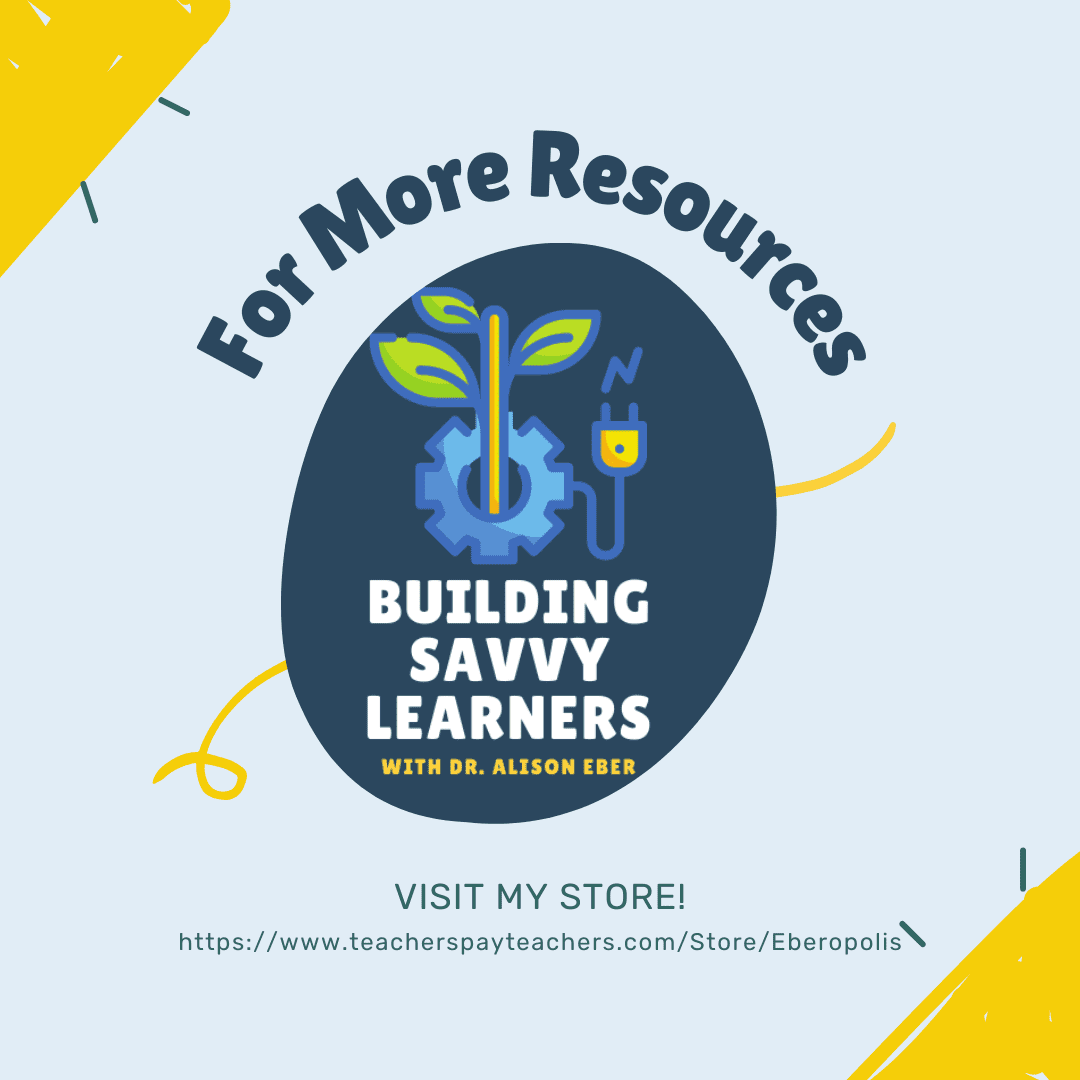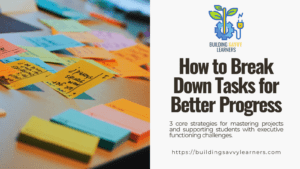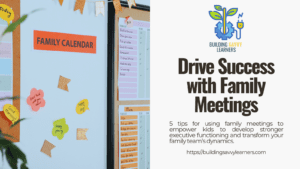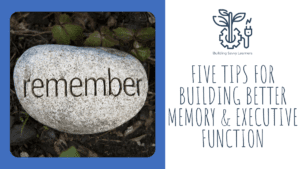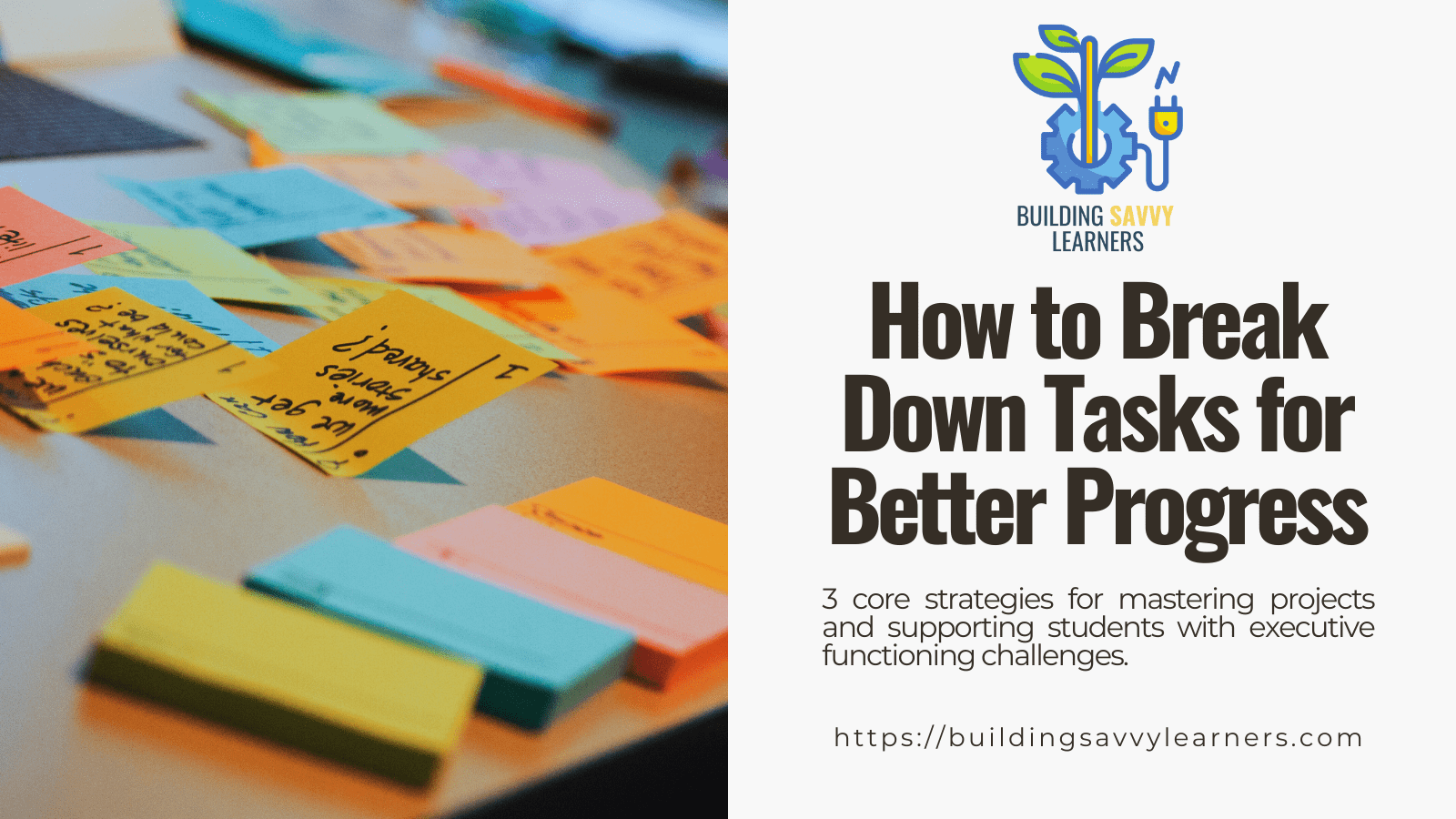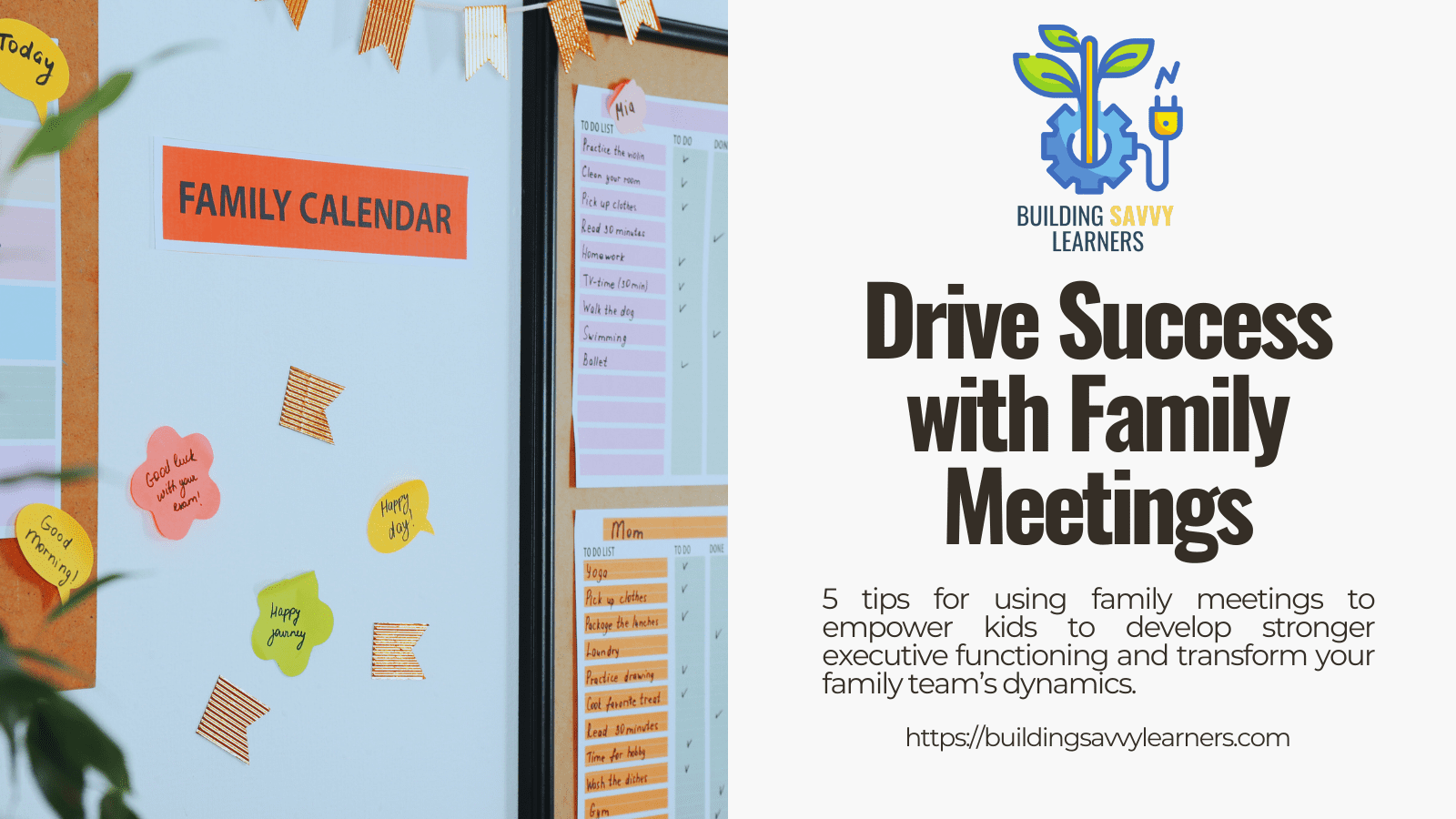Research in education is a lengthy process. I finished writing my doctoral dissertation last month and successfully defended it this week. It ended up being seven chapters and a little over 200 pages. I’m really happy with the final product. And as I prepared for my defense presentation, I reflected on all of the effort that went into the process.
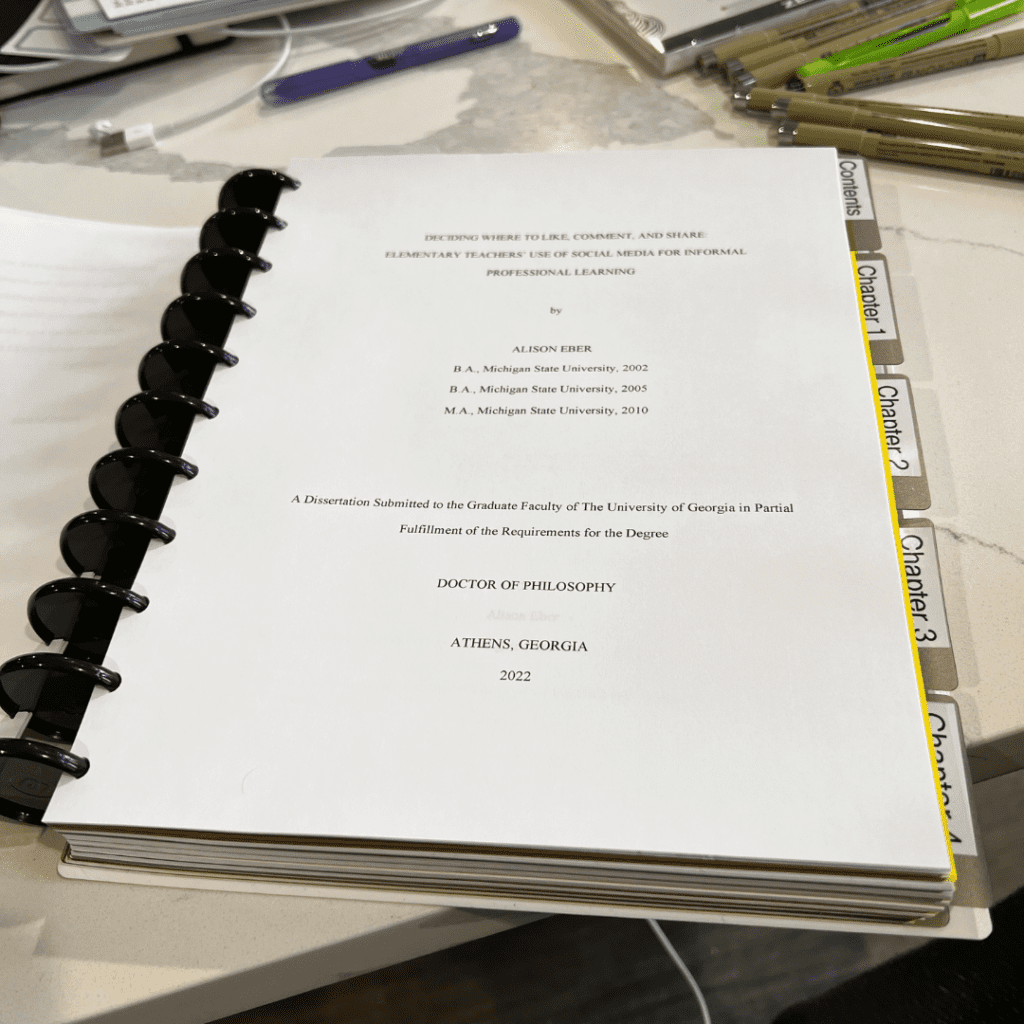
My Experience Researching Teacher Social Media Use
My research project launched in Fall 2018. Before I could start the research, I had to outline the project and have it approved by the university’s institutional review board (IRB). I then spent a full year collecting data through surveys, social media content analysis, and interviews.
The analysis and writing took longer than I had hoped. Virtual teaching and parenting during Covid drained most of my time and energy. It wasn’t until I stepped away from teaching that I was really able to make writing progress. Even then, I haven’t written as many spin-off pieces for publication as I could yet. That publishing process could easily take one or two more years.
The Long Slog of the Research and Publication Process
Research takes time.
This is especially true in the world of educational research. The role of the IRB is to make sure that nothing harmful happens to research participants. They are especially strict about research procedures involving children. This is a good thing. We don’t want our kids to be the subjects of experiments or anything that could damage their education. But it also means that there are extra steps to the research process to acquire and maintain consent.
Research done? Time to Publish…
Once a study concludes, the authors draft articles for publication based on their analyses and findings. Then the peer review process starts. Usually the article is “blinded” to remove author credits, and then it is sent to other experts in the field. Those experts examine the study and data and determine whether the study and its findings are credible. Articles are very rarely accepted outright. Instead, the authors get specific feedback and encouragement to “revise and resubmit.” Or they are rejected completely and have to start the process over again by submitting the article to another journal. (The authors may only submit the article to one journal at a time, so there’s often a hierarchy of preferred publications depending on the field.) The rejection and revision processes can go on for several cycles, each lasting several months.
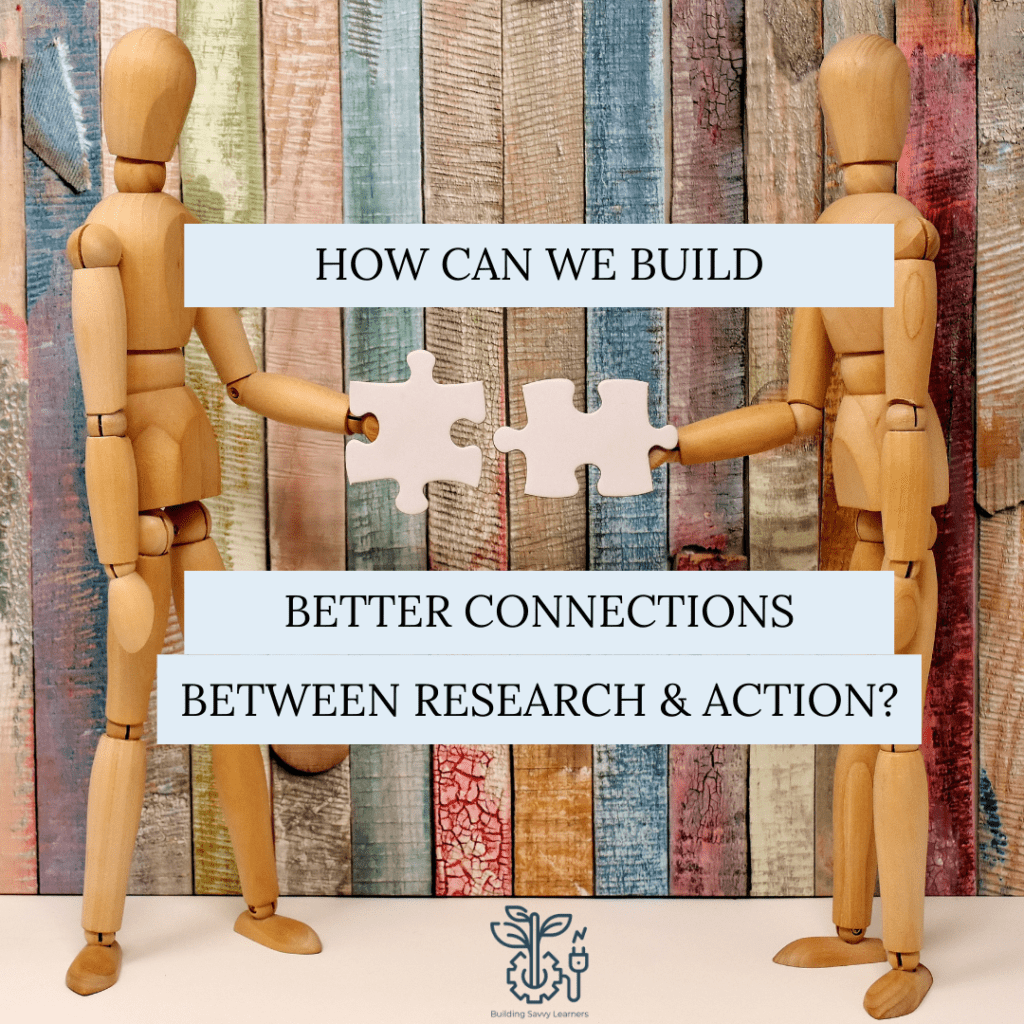
As a result, it can take some time for research to reach its audience. And even once it’s published, the audience for many of those journals is mostly academics working in universities and colleges. Original research isn’t often written up for teacher audiences. If it is put into a practitioner journal, that happens after the more “scholarly” publications are done so that the authors can cite that research.
All of this is to say that it often takes a very long time for research to trickle down to teachers in the classroom. This has implications for both teachers and parents.
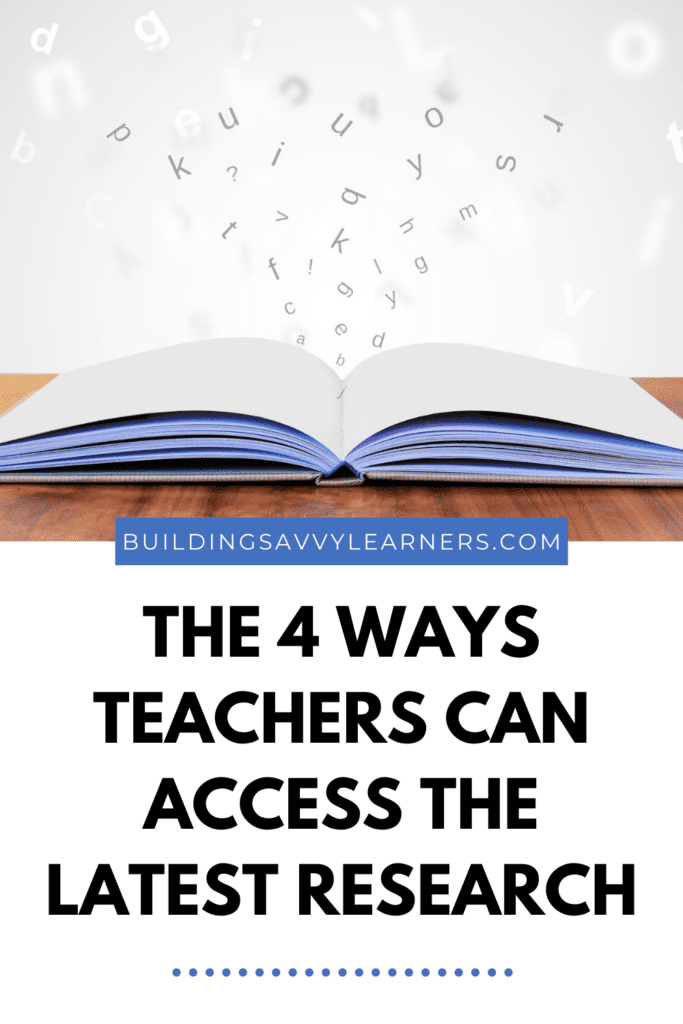
Implications for Teachers
It can be hard to stay on top of current research in education and evolutions in thinking among experts in the field. Here are some tips to stay up-to-date.
Find a niche and skim.
For elementary teachers especially, it can be impossible to stay on top of the current research. After all, elementary teachers often teach all subjects. They also usually work with one group of students each day. That can mean special classroom management and learning needs.
Choose a focus (I used to rotate between 1-2 each year) and look for journals related to that area. Once you’ve identified those journals, skim and scan. Check the article titles for the last few issues. Read the abstracts of any that seem particularly interesting to you. If you’re really interested in an article and don’t have institutional access to the full text, email the authors and ask for a copy. You shouldn’t ever need to pay for access. The authors do not make ANY money off of article sales. Most will be more than happy to share their work.

Here are some examples of reputable research journals.
General:
Special Populations:
Subject Specific:
Use social media to follow prominent researchers in your area of interest.
Once you find your niche and a couple of articles that interest you, look for those authors on social media. Many researchers are especially active on Twitter. There, researchers will share what they’re working on, link to new publications, and provide snippets of thinking there. It can be a great way to engage the authors, ask questions, or gain new insights.
Listen to podcasts.
Whenever I have to do mundane chores like fold laundry, cook dinner, or wash dishes, I often pop in my earbuds and listen to a podcast about topics I’m interested in. There are tons of content specific ones out there, but one of my current favorites is the Science of Reading podcast. Each episode interviews researchers, and it presents the content in informative and actionable ways.
Join and/or follow professional organizations.
Memberships often include access to practitioner journals that unpack research in classroom-friendly ways. The organizations’ social media teams also often share links to articles and online events to deepen teacher knowledge about current research. I’ve especially enjoyed my memberships with the International Literacy Association (ILA), the National Council for Teachers of Mathematics (NCTM), and the Association for Supervision and Curriculum Development (ASCD).

Implications for Parents
Truth time: the professional development that teachers experience through their schools is often woefully inadequate. Professional development is often designed to be one-size-fits-all and align with the district’s agenda more than the individual teacher’s needs. Professional development opportunities are also often limited in scope and duration. Teachers might only scratch the surface of a topic and not have opportunities to test new ideas or troubleshoot what they’ve learned once they’ve tried implementing the new ideas in the classroom.
Still, parents have an important role to play.
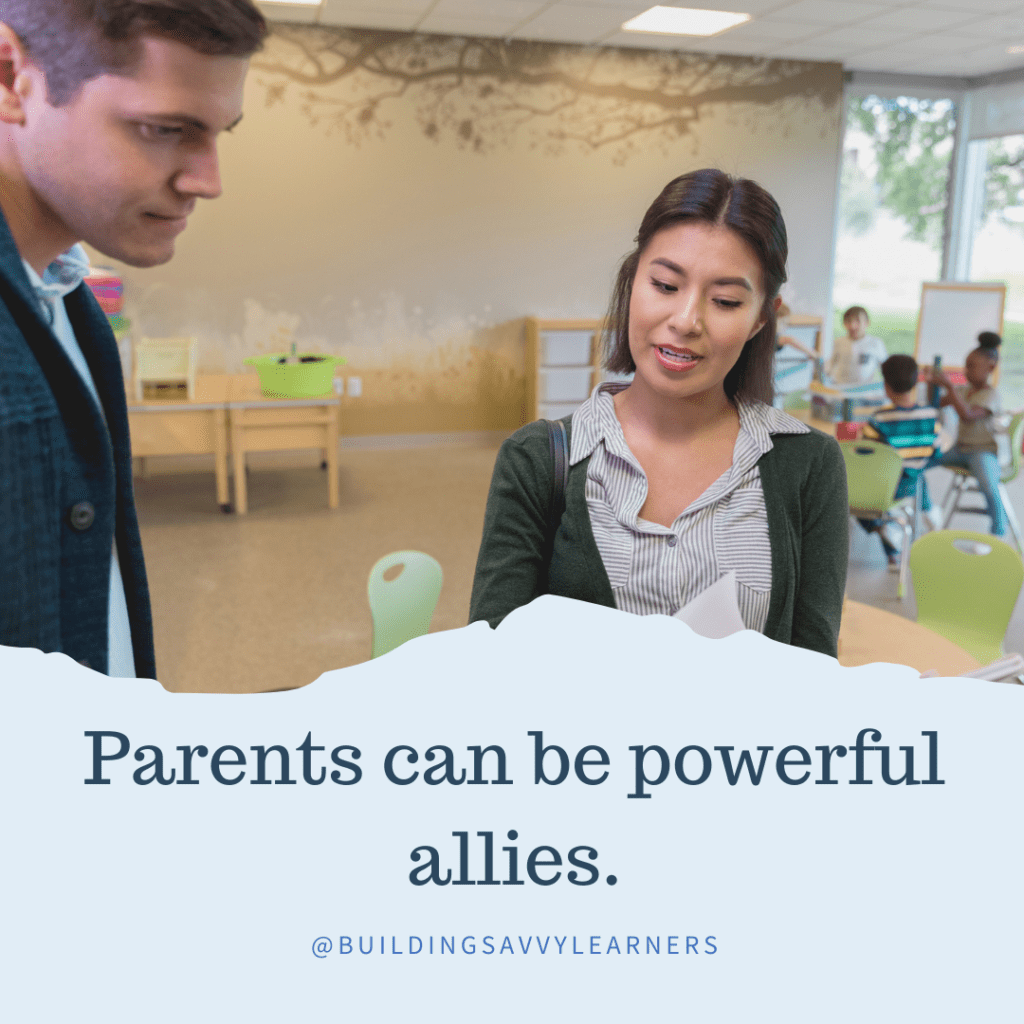
Support teachers in ongoing learning.
Find out the discussion topics on teacher professional development days and how the school spends its professional learning budget. Does it match your child’s teacher’s interests and needs? If not, how can we support that? It may mean fundraising through your school’s PTO to buy teachers memberships to organizations or send them to workshops and conferences. There are also grant opportunities available through organizations like Donors Choose.
Share research in education in a collaborative way.
Sometimes parents may be more up to date with current research than the teachers. I especially saw that when working with special needs populations as a general education elementary teacher. Don’t necessarily assume that your child’s teacher has read all of the studies. Teachers don’t usually get the time, space, and access to resources to make that possible.
If you think there’s an article or bit of research that would be helpful to your child’s teacher, share it in a friendly and cooperative way. A simple note like “I don’t know if you’ve seen this yet, but this article has some great suggestions for helping Billy improve with spelling” could go a long way to support your child’s teacher. It treats them as a professional and suggests a willingness to have a collaborative relationship.
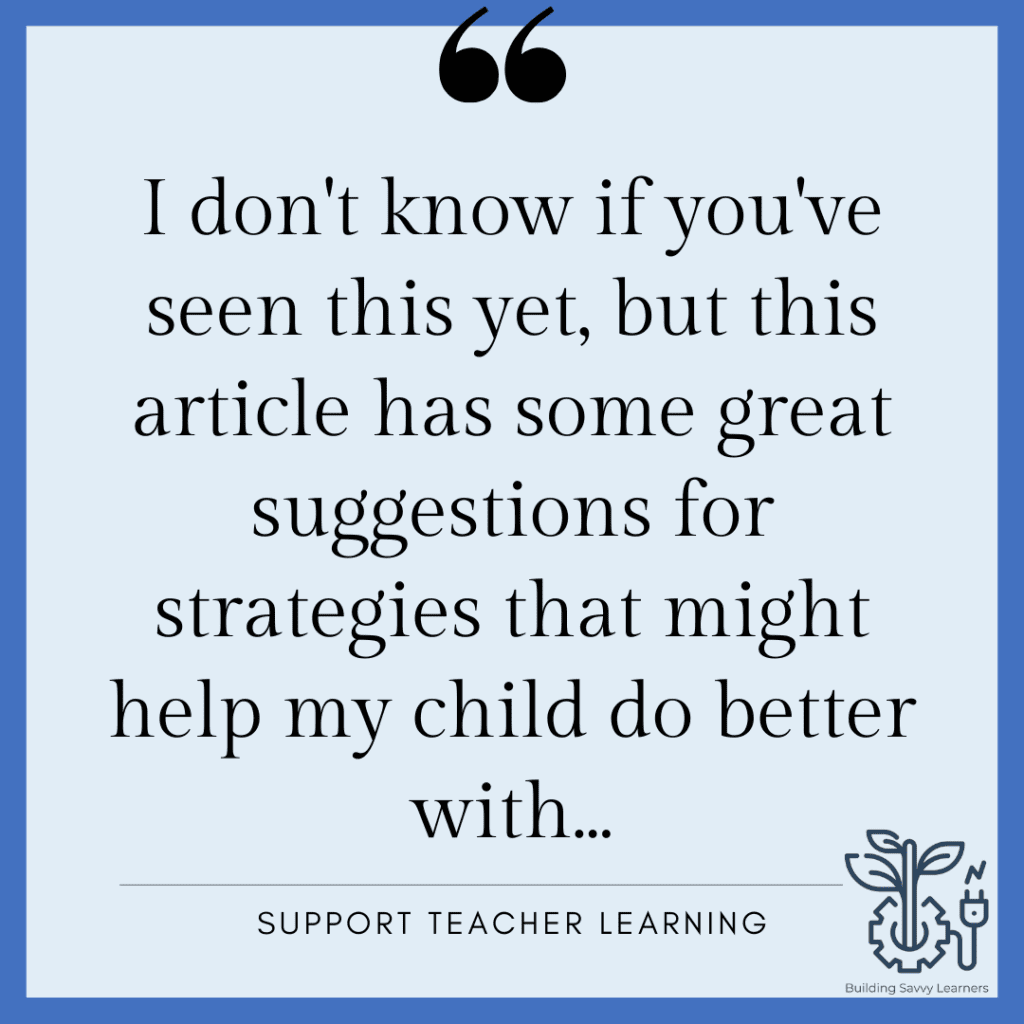
There are many systemic problems in education today. It’s not the teacher’s fault that they aren’t optimally up-to-date with all facets of current research in education. That’s not a realistic expectation, and your support for teachers now, more than ever, is really important.
Be open to change.
I encountered many parents who were experts on a particular nuance of their child’s education. But I also saw many parents stuck in outdated practices that reflected how they learned something. This was especially true in math, where current research suggests a more conceptual, inquiry-based approach. Assume that the teachers have good intentions and are using effective teaching practices. This is especially true if you’re questioning an area where you haven’t kept up with the research yourself. Educate yourself before you dismiss the teaching strategies. I recently wrote about this in the context of math. You could also reach out to your school’s instructional coach or curriculum director for more information.
The Future of Building Savvy Learners
One of my goals for developing content for Building Savvy Learners is to help bring academic research in education to teachers and parents in a practical and reader-friendly way.
What are some education-related topics you’re curious about?
Leave me a comment and your suggestions may be the focus of future articles or webinars.


